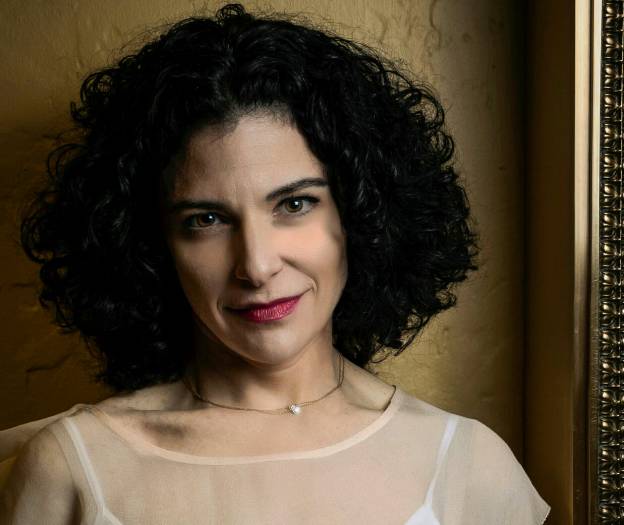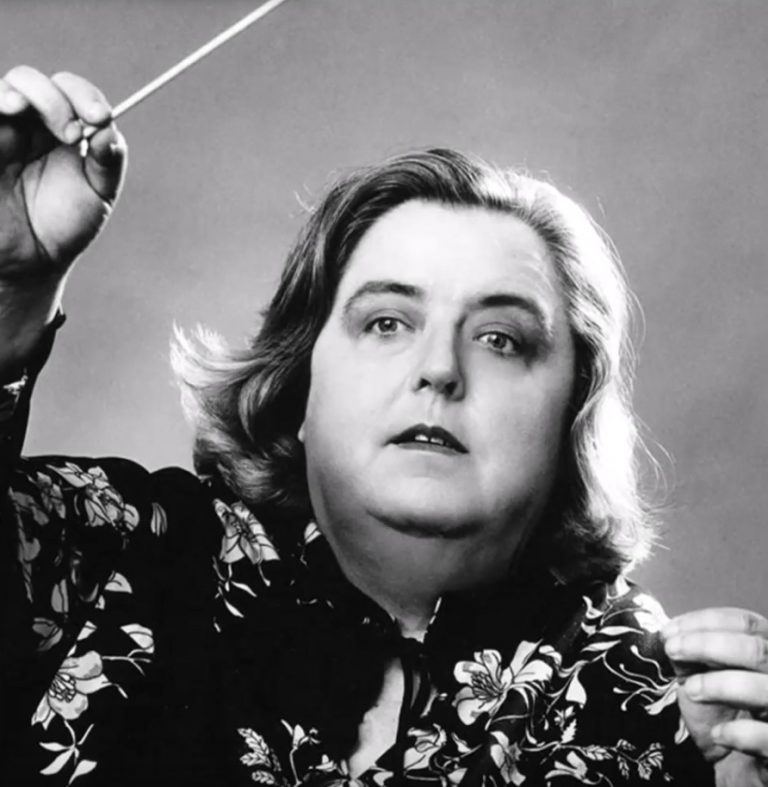by Jarrett Hoffman

•Today: Schubert chamber music at Trinity Cathedral, Brahms organ music at Trinity Lutheran, CWRU Baroque ensembles at CMA, a piano trio at CIM, and music for voice and piano at LCCC
•Announcements: Apollo’s Fire family concerts, and all-state prep at BW
•Almanac: Zoltán Kodály, The Flight of the Bumblebee, Sarah Caldwell, and Dame Kiri Te Kanawa
HAPPENING TODAY:
12:00 pm – Trinity Brownbag Concert, Lara Nie, mezzo-soprano (pictured), Andrew Sords, violin, Brian Slawta, viola, Nathanael Matthews, cello, Steven Brija, bass, and Elizabeth DeMio, piano. A selection of Franz Schubert’s Lieder & the “Trout” Quintet. Trinity Cathedral, 2230 Euclid Ave., Cleveland. Freewill offering.
12:15 pm – Wednesday Noon Organ Concert by Florence Mustric. “Last notes from Brahms.” The eleven chorale preludes that are his final homage to J.S. Bach. Beckerath organ. Trinity Lutheran Church, W. 30th & Lorain, Cleveland. Freewill offering.
6:00 pm – CMA Performing Arts Series: Chamber music in the Galleries. “The English Orpheus: Instrumental Music by Henry Purcell” showcases the Baroque Chamber Ensembles from Case Western Reserve University’s Historical Performance Practice Program, under the direction of Jaap ter Linden, performing in the Donna and James Reid Gallery of Italian Baroque art (gallery217). Cleveland Museum of Art, 11150 East Boulevard. Free.
7:30 pm – CIM Insiders: Philip Setzer, Richard Weiss, and Daniel Shapiro. Music includes Loggins-Hull’s Stolen for Solo Cello, Harbison’s Serenade for Solo Violin and Piano Sonata No. 2, and Beethoven’s Piano Trio in E-flat, Op. 70, No. 2. Mixon Hall, Cleveland Institute of Music, 11021 East Blvd, Cleveland. Free — seating passes required.
7:30 pm – LCCC Signature Series: Janine Porter, soprano, and Gerald Evans, piano, with guest pianist Coren Estrin Mino. Program includes Poulenc’s Banalites, Lutoslawski’s Variations on a Theme by Paganini, and Barber’s Knoxville: Summer of 1915. Cirigliano Studio Theatre, Stocker Arts Center, Lorain County Community College, 1005 N. Abbe Rd. Free.
ANNOUNCEMENTS:
Apollo’s Fire will present family concerts over the next two weekends in Cleveland and Akron, performing music from 16th-century Spain to the Baroque period of Latin America. Audience members are also invited to the instrument “petting zoo” afterwards to learn about instruments such as the castanets. Registration is encouraged. More information here.
Baldwin Wallace Conservatory will present free Ohio All-State workshops next month focusing on fundamentals and etude preparation. Woodwind and percussion classes will take place on April 6 (10-11:30 am), while brass will meet on April 20 (10-11:30 am). Classes will be led by Sean Gabriel and Kaleb Chesnic, flutes, Johanna Cox Pennington, oboe, Dan McKelway, clarinet, Thomas English, bassoon, Gabriel Pique, saxophone, Josh Ryan, percussion, Jack Sutte, trumpet, Kenneth Heinlein, tuba and euphonium, and Scott Strong, horn. Registration is required and space is limited.
TODAY’S ALMANAC:
by Daniel Hathaway
On March 6, 1967, Hungarian ethnomusicologist, educator and composer Zoltán Kodály passed away in Budapest.
Listen to Kodály talk about his views on music education here. And listen to his Dances of Galanta performed by The Cleveland Orchestra under István Kertész at Blossom in 1969, with solos by former principal clarinet Robert Marcellus. We’re advised that there’s “a loud bang during his solo which is explained in the announcement at the end.” That would be the famous ‘Blossom Boom,’ created by the expansion and contraction of the pavilion beams.
ChamberFest programmed Kodály’s Serenade for Two Violins and Viola in June, 2014. Watch the performance by Diana Cohen, David Bowlin, and Yura Lee here.
And on March 6, 1900, Nikolai Rimsky-Korsakov is reported to have put the finishing touches on the little orchestral interlude he had written for his opera, The Tale of Tsar Saltan, that soon achieved its own life as The Flight of the Bumblebee. Compare performances by pianist Yuja Wang, the London Cello Orchestra, the Royal Philharmonic Wind Sextet, and Carolina Eyck (theremin!)
During Women’s History Month, it’s especially appropriate to remember two figures who left their mark on classical music.

Her colorful career is touched upon in an episode of Virginia Eskin’s “First Ladies of Music,” and related in some detail in Richard Dyer’s Boston Globe obituary of March 25, 2006 following her death at the age of 82.
Stories about Caldwell’s brilliance and eccentricities abound. I recall hearing about an almost nightly ritual when her staff fanned out to try to find where she had parked her car that day. And I showed up with hundreds of other ticket holders for a performance of Schoenberg’s Moses and Aaron only to discover a note taped to the theater door announcing the indefinite postponement of the production. (Dyer notes that she “once sold tickets for Verdi’s spectacular and popular Aida, but offered Mozart’s intimate and little-known La Finta Giardiniera instead”).
Continuing with famous women in music, Dame Kiri Te Kanawa was born on March 6, 1944 in Gisborne, New Zealand. After studies at the London Opera Centre, she made an auspicious American debut as the Countess in The Marriage of Figaro at the Santa Fe Opera in July of 1971, a production that also featured the debut of Frederica von Stade as Cherbino.
Her later career included her appearance as Maria in the “Operatic” version of West Side Story, along with José Carreras as Tony, Tatiana Troyanos as Anita, Kurt Ollmann as Riff, and Marilyn Horne as the offstage voice. Here, she’s featured in a 1986 Montreal Symphony Concert led by Charles Dutoit in arias by Handel, Mozart, Bellini, Gounod, Boito, Puccini and Charpentier.



